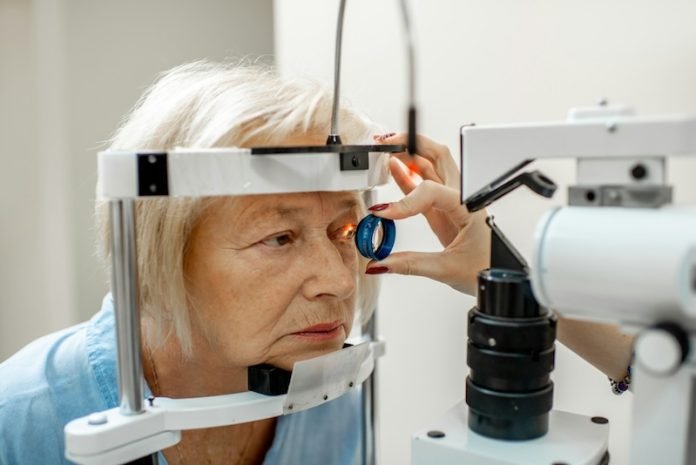
Diabetes is a condition that affects how your body handles blood sugar, and it can lead to various complications if not managed properly.
One of the areas of the body that diabetes can significantly affect is the eyes. Regular eye exams are crucial for people with diabetes because they help catch and manage issues before they become severe.
When someone has diabetes, they are at risk of developing a problem called diabetic retinopathy. This occurs when high blood sugar levels damage the tiny blood vessels in the retina, the part of the eye that captures images and sends them to your brain.
Diabetic retinopathy is the leading cause of blindness in adults, making regular eye exams a key preventive measure.
The longer a person has diabetes, especially if it’s not well-controlled, the higher the risk of developing eye problems. Early diabetic retinopathy may not cause any symptoms, which is why regular check-ups are so important.
An eye doctor can spot signs of damage before you even notice anything is wrong. As the condition progresses, symptoms can include blurred vision, floaters, dark areas of vision, and difficulty perceiving colors.
Research shows that early detection and treatment can significantly reduce the risk of blindness from diabetic retinopathy.
A study published in the Journal of Diabetes and its Complications found that more than 90% of new cases of blindness among patients with diabetes could be prevented with proper eye care and regular check-ups.
Another eye condition that diabetics are prone to is glaucoma, which involves increased pressure in the eye that can lead to vision loss.
People with diabetes are nearly twice as likely to get glaucoma as non-diabetics. Regular eye exams can detect glaucoma early and treatments can prevent the disease from worsening.
Cataracts are another concern; these are areas of the eye that become cloudy and can impair vision. Diabetics are 2 to 5 times more likely to develop cataracts than non-diabetics, and they tend to get them at a younger age.
Detecting cataracts early during an eye exam allows for treatment options that can restore vision.
Given these risks, how often should someone with diabetes get their eyes checked? The American Diabetes Association recommends that adults with type 1 diabetes have a comprehensive eye exam within five years of their diagnosis, and those with type 2 should have one at the time of diagnosis.
After these initial exams, a yearly check-up is generally advised, though some might need more frequent visits depending on their condition’s severity and progression.
During an eye exam, your doctor will do more than just test your vision. They’ll often dilate your eyes with drops that make your pupils larger. This dilation allows them to see the back of your eye clearly, checking for any signs of damage or disease.
These exams are quick, largely painless, and can make a massive difference in maintaining your eye health and overall quality of life.
In conclusion, for those living with diabetes, regular eye exams are not just about keeping your vision in check. They’re a crucial part of managing your health and preventing complications that can dramatically affect your independence and quality of life.
By catching issues early, you stand the best chance of treating them effectively, preserving your sight, and staying active and engaged in your daily life.
If you care about eye health, please read studies about how vitamin B may help fight vision loss, and MIND diet may reduce risk of vision loss disease.
For more information about eye disease, please see recent studies about how to protect your eyes from glaucoma, and results showing this eye surgery may reduce dementia risk.
Copyright © 2024 Knowridge Science Report. All rights reserved.



